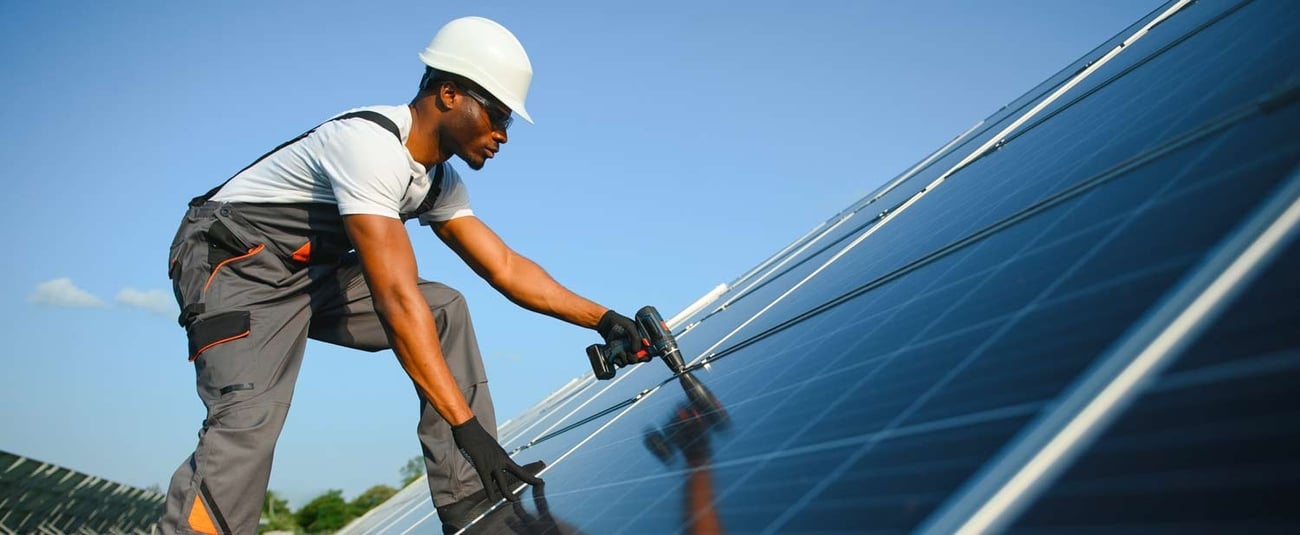
By Jeff Kapembwa
Zambia’s energy woes spurred by climate-induced actions are seemingly being addressed in collaboration with the private sector after Africa Development Bank approved US$14,5 million financing to install 20-Megawatt solar project in Garneton North in the northern part of the country to benefit 82,000 people and mitigate recurring climate effects.
The approval of the solar-financing by the financial institution’s board of directors entails the African Development Bank facilitating a paltry $7.27 million with the rest being provided in matching concessional financing from an unidentified Development Finance Institution.
The financing once actualized will further assist Zambia continue mitigating and adapting the climate change effects as the clean and reliable energy from the solar power will also eliminate the release of 58,740 tons of CO2 emissions to the atmosphere per annum besides 82,000 people benefiting from solar.
The gesture by AfDB in helping close Zambia’s energy gap shows forms part of Africa’s resolve to ensure 300 million in Africa access clean electricity by 2030, as the continent ‘turtles away from the energy deficiency that has crippled industry and domestic end-user, many still wallowing in the dark.
The AfDB in a statement reaffirms the financial institution’s resolve to catalyse the country’s renewable energy expansion, addressing the energy deficit through maximum use of renewables. Making Zambia among the first cohort of countries launching national energy compacts under Mission 300 January this year.
According to the Scope of work (Bill of Quantity-BOQ), under the 14.5 million project funds will go towards project design, construction, operation, and maintenance of the 20 megawatt solar plant, to be connected to the national grid via a 10 km, 33 kV power line.
Under a 25-year take-or-pay Power Purchase Agreement, the Zambia Electricity Supply Corporation Limited will offtake all electricity generated from the plant, according to Wale Shonibare, Director of Energy Financial Solutions, Policy, and Regulation.
“The project marks a key milestone in Zambia’s efforts to restore confidence in its power sector, attract private sector investment, and drive progress toward closing the energy gap and achieving Mission 300 goals,”
The Garneton North 20MW Solar Project is one of six projects selected by the Zambia government under the country’s Global Energy Transfer Feed in Tariffs (GETFiT) programme, designed to unlock private-sector investment in small- and medium-scale renewable energy independent power projects in the country.
It will hire 90 people during construction compromising 5 women and 50 youth, and will hire 10 people during operations, comprising 2 females and 6 youth. The project will add critical capacity to Zambia’s strained power grid, reducing blackouts and improving energy security.
The GETFiT programme approach will facilitate the timely procurement of a total 120 MW of renewable energy capacity; diversify Zambia’s power mix, and demonstrate that Zambia’s power sector is once again bankable for private investment.
“Through the successful implementation of this project and the broader programme, Zambia will demonstrate its strong commitment to diversifying its energy mix away from hydropower and enhancing energy security,” said Jing Li, Division Manager, Energy Financial Solutions at the African Development Bank.
“By expanding renewable generation capacity, the project will help reduce the frequency and severity of power outages, ensure a more reliable electricity supply, and contribute to maintaining cost-reflective tariffs for consumers.”
The Garneton North 20MW Solar Project aligns with the African Development Bank’s Ten-Year Strategy (2024–2033), and the New Deal on Energy for Africa, advancing a low-carbon development path and facilitating universal electricity access through clean energy.
It further supports the Bank’s climate change, gender, youth employment, and resilience strategies, as well as private-sector-led renewable energy development under Mission 300.
The Garneton North 20MW Solar Project aligns with the African Development Bank’s Ten-Year Strategy (2024–2033).
It also forms part of the New Deal on Energy for Africa, advancing a low-carbon development path and facilitating universal electricity access through clean energy.
